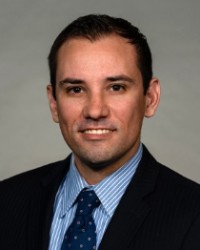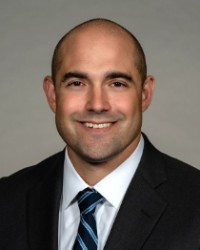Employment 2025
USA – Massachusetts
Trends and Developments
Developments in Massachusetts Employment Law
Massachusetts remains one of the most dynamic jurisdictions in the United States. The legal developments and the expansiveness of the protections, as interpreted by the courts, present great challenges for employers. The dynamism of Massachusetts looms large in the overall context of American law as it expands and becomes ever nuanced in the protections. This review of trends and developments provides a glimpse of some of the key trends with practical and sound guidance.
Massachusetts Commission Against Discrimination (MCAD)
In its most recent annual report, MCAD offered insight into current investigation trends and results. In 2024, the trend of increasing new complaints filed continued, after a slight decline during the COVID period in 2021. In 2022, 2,822 new complaints were filed; in 2023, there were 3,086 filed; and in 2024, a total of 3,553 complaints were filed. MCAD also maintains a considerable backlog of open cases (defined as investigations over 18 months old), but managed to slow the rate of backlog increases to just 2.8% from 2023–2024, after a massive increase of 27% from 2022–2023. The current backlog sits at 1,851 cases. Notably, MCAD reported that of its total 1,276 investigative findings in 2024, 84% found a lack of probable cause to support the complainant’s allegations and 16% resulted in a probable cause finding.
Noteworthy recent decisions by MCAD include large awards of attorneys’ fees and costs for complainants recovering for discrimination claims before the Hearing Commissioner. These include an award of USD157,327 to the complainant in a successful finding of failure to make reasonable accommodations, retaliation, and constructive discharge against the Massachusetts Department of Children and Families, MCAD and Joseph v Massachusetts Department of Children and Families, 46 MDLR 18 (2024); an award of USD231,996.38 in attorneys’ fees for the successful claim of racial discrimination and retaliation by an African-American woman against her employer, MCAD and Thomas v Stash’s Pizza (2024); and USD53,498.90 awarded in attorneys’ fees to the complainant for successful claims of hostile work environment, sexual harassment and retaliation, MCAD and Vincenti v the Plymouth Exchange et al (2024).
The 2024 MCAD Annual Report is available here.
Wage and hour litigation
First Circuit finds judicial delay not a basis for equitable tolling in FLSA collective action
The First Circuit Court of Appeals decided in Kwoka v Enterprise Rent-A-Car, 141 F.4th 10 (1st Cir. 2025), that the district court’s delay issuing a decision could not form the basis for a claim of equitable tolling of the statute of limitations for an action brought pursuant to the Fair Labor Standards Act (FLSA). Assuming without deciding that a delay could be a basis to equitably toll the statute of limitations, the First Circuit panel concluded that no such tolling was warranted in this case. Accordingly, the decision affirmed the dismissal of untimely FLSA claims asserted by opt-ins that had joined the action after the complaint had been filed.
The plaintiff, Mamadou Bah, an assistant branch manager for Enterprise Rent-A-Car, filed an action challenging his “exempt” classification from overtime wage requirements of the FLSA and Massachusetts law. He filed the action in December 2017, alleging that the defendant joint employers had failed to pay him and other assistant branch managers overtime wages prior to 27 November 2016. On the date the complaint was filed, Bah also filed a Motion to Issue Notice Pursuant to Section 216(b) of the FLSA, which sought conditional certification of a collective of similarly situated assistant branch managers in the three years prior to November 2016. In response, the defendants moved to stay briefing on the motion due to a pending motion to dismiss, which the District Court granted. Later that year, the Court dismissed all claims against one of the defendants and, in response, Bah filed an amended complaint on 15 October 2018. Further motion practice continued in response to the amended complaint, which led to Bah filing a second amended complaint. More briefing – a motion to dismiss the second amended complaint that was denied and a motion for reconsideration that was also denied – meant that the original stay order was not addressed until 5 November 2021. By this time, almost four years had elapsed since the filing of the original complaint, with the statute of limitations for claims under Section 216(b) continuing to run for assistant branch managers other than the named plaintiff, Bah.
The parties were then instructed by the Court to brief the proposed conditional certification of nationwide assistant managers. Defendants opposed certification of a nationwide collective, and further, sought an additional stay due to a pending ruling on a related question about personal jurisdiction under consideration by the First Circuit in Waters v Day & Zimmerman NPS, Inc., 23 F.4th 84, 89 (1st Cir. 2022). Over Bah’s objection, a stay was ordered. The Waters decision issued on 13 January 2022 resolved the District Court’s concern regarding personal jurisdiction and a class was conditionally certified by order dated 28 June 2022. At that time, the District Court recognised that the statute of limitations had expired for all potential opt-ins to Bah’s lawsuit. Nonetheless, the Court ordered issuance of the FLSA notice on the basis that opt-in plaintiffs “would not be barred from joining the collective if he or she prove[d] that equitable tolling of the statute of limitations applie[d].”
Over 1,400 individuals filed opt-in forms in response to the notice, with a large percentage also signing template declarations to explain why they had not pursued their claims earlier. Under Supreme Court precedent, the opt-in plaintiffs were required to demonstrate that they had been “diligently” pursuing their rights and that “some extraordinary circumstance” prevented timely filing of claims. (See Menominee Indian Tribe of Wisconsin v United States, 577 U.S. 250, 255, 136 S.Ct. 750(2016).) The District Court concluded that Bah had failed to demonstrate that the opt-ins had diligently pursued their claims and declined to categorically grant tolling to all of the opt-ins, as that approach would “make equitable tolling common and disrupt the balance struck by Congress in enacting the FLSA.” The Court also rejected the argument that judicial delay was an “extraordinary circumstance” that supported tolling, because the delays were attributable to the “normal course of deliberation and decision.” The Court also noted that Bah had never filed a motion to toll the statute of limitations before it had expired. The Court then decertified the collective and entered a partial final judgment. An interlocutory appeal followed.
Plaintiff-appellants argued that it was abuse of discretion to not order tolling on a categorical basis, as opposed to making individualised showings why each person was unable to timely opt in to the lawsuit. They claimed categorical tolling was warranted based on unique circumstances; namely, the “significant delay” in the court’s ruling on the motion to issue notice to the putative class, in conjunction with the non-obvious nature of the alleged FLSA violations and the defendants’ alleged concealment of those violations. The First Circuit readily dismissed appellants’ arguments as to concealment and non-obviousness of the violations and focused its attention on the effects of “significant delay”. The First Circuit highlighted that the cases that plaintiffs rely upon for tolling as the result of significant delays do not suggest that the delay itself, no matter the reason for it, warrants tolling. Moreover, the First Circuit found that in this case, the issuance of the notice after the expiration of the limitations period was attributable to the plaintiff’s own defects in pleading facts necessary to state a claim on behalf of potential opt-ins. The only complaint that properly pleaded facts in support of such claims was filed on 16 March 2020 – after the statute of limitations had already lapsed for potential opt-ins.
The First Circuit also noted that while Bah had raised equitable tolling in its opposition to the defendants’ original motion to dismiss, Bah had never again raised the issue of tolling after that first motion to dismiss was decided. The panel suggested that Bah should have raised the motion again to address further case delays caused by subsequent motion practice related to the amended complaints. Accordingly, the panel declined to second guess the decision-making of the district court to find that the delay was not a “delay beyond the movant’s control”, and arising from plaintiff’s own actions and inactions and not in any way “inherent” in the FLSA certification process.
District Court resolves ambiguity in Massachusetts Wage Act and finds employee stated viable claim for one-day delayed payments
In a case of first impression, the District of Massachusetts in Turgut v Hitachi Rail STS USA, Inc., 768 F.Supp.3d 200 (27 February 2025), examined if an employee had stated a viable claim under the Massachusetts Wage Act by alleging that his employer paid its engineering managers on the seventh – and not the sixth – day following the close of the payroll period. That is what the plaintiff Volkan Turgut (Turgut) contended in a putative class action against his employer, Hitachi Rail STS USA (Hitachi). The Court openly acknowledged that, to some, a one-day difference in payment dates may be seen as harmless. But after an in-depth analysis of statutory construction, the Court determined that the answer was “yes” – one day delays in payment could be the basis of a viable Wage Act claim, but that the claim depended on the specific work schedule of the employee in consideration of the employee’s status as either salaried or hourly worker.
Turgut, a senior engineer manager with Hitachi, alleged that he works five days a week and is paid on a 14-day payroll period. He further claimed that Hitachi does not pay him within six days of the close of any payroll period, and has not done so since at least February 2021. In his complaint, Turgut alleged that most Hitachi employees in Massachusetts work either five or six days per week. Turgut purported to represent a class of Hitachi employees who did not receive their wages within six days of the close of the payroll period. Hitachi moved to dismiss the Wage Act claims.
The Massachusetts Wage Act sets forth different deadlines for payment to employees depending upon how many days per week an employee works. A six-day deadline for payment applies to employees that work five or six days in a week; a seven-day deadline applies to employees that work less than five days per week, but also those employees that work seven days per week. Hitachi argued in its motion to dismiss that because the statute used the word “employed”, a salaried employee should be considered to be “employed” for seven days per week, notwithstanding how many days per week they actually work (allowing Hitachi to pay them on the seventh day after the close of the pay period). However, a 1960 amendment to the Wage Act that mandated that salaried employees should not go unpaid for more than six days presented a barrier to that interpretation. Finding the plain text of the statute and amendment to be ambiguous, the Court engaged in an analysis of legislative history and canons of statutory construction.
After an analysis of relevant legislative and attorney general guidance materials, the Court ruled that in order to give full effect to the language of the 1960 amendment, it could not accept Hitachi’s argument that salaried employees were “employed” for seven days per week and subject to a seven-day payment deadline. Accordingly, the Court determined that for all salaried employees, the Wage Act requires that they be paid within six days. For hourly employees that work seven calendar days of a week, and those that work less than five calendar days in a week, the seven day deadline for payment similarly applies. Only hourly employees that work five or six calendar days per week must be paid within six days.
Because the plaintiff worked only five days per week, the six day deadline for payment applied. Accordingly, the Court denied Hitachi’s motion to dismiss. In its conclusion, the Court noted that it was not entitled to second guess the legislature’s decision to vary payment deadlines, and further emphasised that for certain Massachusetts workers living paycheck to paycheck, a single day’s payment delay could be important.
Recent verdicts and reported wage and hour settlements
Su v Gate Solution Sys. Inc. et al, 2024 WL 5359544 (Massachusetts District Court, 21 November 2024) – USD2,424,576 (settlement)
The US Department of Labor alleged that defendants Healthcare Services Group Inc., Gate Solution Systems Inc. (GSS), and GSS’ owners/managers failed to pay employees premium overtime compensation and failed to keep accurate employment-related records in violation of the Fair Labor Standards Act.
Macedo v Hatch, 2024 WL 4784541 (Massachusetts Superior Court, 28 August 2024) – bench verdict for defendant
Plaintiff Douglas Macedo alleged that he was employed by a landscaping company owned by the defendant, and that he was terminated following his request to be paid overtime wages to which he was entitled. He asserted claims for retaliation under the Massachusetts Wage Act. The defendants denied the allegations and alleged the plaintiff was discharged for poor job performance. The defendants claimed that they had made a good-faith payment to, and later entered into a severance agreement with, the plaintiff. The defendants claimed they fully performed its obligations under the severance agreement, but the plaintiff breached the agreement by engaging in activities that he promised to refrain from.
Sutton v Jordan’s Furniture, Inc., 493 Massachusetts 728 (2024) – USD11.6 million (jury verdict)
The Supreme Judicial Court of Massachusetts affirmed judgment in favour of plaintiffs, a class of commission-based sales associates, against furniture retailer Jordan’s Furniture, concerning failure to pay time-and-a-half wages for working overtime and on Sundays. Following the appeal, the trial court entered final judgment for USD11.6 million, plus USD500,000 in attorneys’ fees and costs. The judgment was equal to the amounts owed to all Jordan’s sales associates between 19 June 2016, and 1 August 2019, plus treble damages and pre- and post-judgment interest.
Walsh v Liam’s Home Furniture Inc. et al, 2023 WL 11967952 (Massachusetts District Court, 1 December 2023) – USD15,000 (settlement)
The US Department of Labor brought action on behalf of delivery driver Scott Reddin against defendant-employers Liam’s Home Furniture Inc., Collins Movers Inc., and Francise Frederick, the manager of Liam’s and Collins. When Reddin stated that he intended to report the defendants to the Department of Labor for non-payment of wages, Frederick allegedly assaulted him in response. The plaintiff alleged the defendants failed to pay Reddin minimum wage for all hours worked, failed to keep complete and accurate records, and unlawfully retaliated against Reddin in violation of the FLSA. The defendants denied the allegations and claimed Reddin was not an employee and had unclean hands. The defendants also denied that Frederick assaulted Reddin, contending Frederick acted in self-defence.
Walsh v Fakhouri Inc. et al, 2023 WL 11976549 (Massachusetts District Court, 14 September 2023) – USD338,628 (settlement)
US Department of Labor action against defendant Fakhouri Inc. d/b/a Sound Bites Cafe, a restaurant, and defendant Yasser Mirza, who managed the restaurant’s operations and employees, where the plaintiff alleged FLSA violations including retention of employee tips, failure to pay the federal minimum wage for all hours worked for two employees, failure to pay at least 14 employees overtime at the proper rate, and failure to maintain employment-related records.
Massachusetts statutes and regulations
Massachusetts Pay Transparency Law takes effect on 29 October 2025 and requires covered employers to provide pay range information
Effective 29 October 2025, the pay transparency provisions of the Equal Pay Act of 2018, G.L. c. 149, Section 105F, will take effect. Employers with 25 or more employees in Massachusetts (“Covered Employers”) will be required to disclose the pay range for all job postings. Under the law, the pay range is the annual salary or hourly range that the employer “reasonably and in good faith” expects to pay for the position. The law also makes pay ranges available to current employees that are offered promotions or position transfers and who request pay information. Covered Employers are prohibited from engaging in retaliation against an employee seeking to enforce their rights or file a complaint related to an alleged violation of the statute. The statute provides the attorney general with exclusive jurisdiction to enforce subsections (b)–(d), which concern the requirements for Covered Employers to provide the pay range information.
Independent contractor/misclassification
Supreme Judicial Court holds that 7-Eleven franchisees are not employees of 7-Eleven in misclassification action
In Patel v 7-Eleven, Inc. (Patel II), 494 Massachusetts 562 (2024), the Supreme Judicial Court (SJC) resolved a long-running case in which 7-Eleven franchisees claimed that they were misclassified as independent contractors and should instead be considered employees of the franchisor. Responding to the a certified question from the United States Court of Appeals for the First Circuit, the SJC held that the plaintiffs had failed to meet their threshold burden under the Massachusetts Independent Contractor Law (ICL), G.L. c. 149, Section 148B, that they were performing services for the defendant, 7-Eleven and determined that the franchisee-plaintiffs were operating their own independent business.
In Patel I, the SJC identified that the threshold question under the ICL for independent contractor classification was whether any employee claiming to be misclassified actually performs any service for the franchisor. (Patel v 7-Eleven, Inc. (Patel I), 489 Massachusetts 356, 370 (2022).) For this threshold question, the plaintiff-franchisee bears the burden of proof. If met, the burden then shifts to the franchisor defendant to meet all three prongs of the “ABC” test under the ICL: “(1) the individual is free from control and direction in connection with the performance of the service, both under his contract for the performance of service and in fact”; “(2) the service is performed outside the usual course of the business of the employer”; and “(3) the individual is customarily engaged in an independently established trade, occupation, profession or business of the same nature as that involved in the service performed.” (Id., at 361.) As the Court in Patel I noted, nothing prohibits the existence of legitimate franchise relationships not created to evade obligations under the wage statutes. Based on the ruling in Patel I, the trial court entered summary judgment for defendant, 7-Eleven.
On appeal, the First Circuit certified a second question to the SJC. Namely, do the plaintiff franchisees perform services for the franchisor within the meaning of the ICL when they perform contractual obligations under the franchise agreement, and to which the franchisor receives a percentage of gross profits? The SJC concluded “no”. The decision confirms that when there is a “true” franchise relationship, plaintiffs are unable to overcome the threshold question under the ICL established in Patel I. Operating a franchised business pursuant to a franchise agreement is insufficient to satisfy the franchisee’s threshold burden. The franchisees, rather than operating the stores under their own goodwill, choose to operate those stores with the benefits of the franchisor’s brand and promise to use the brand licence with standards designed to maintain the quality of the brand. The SJC also stated that the fact that the franchisor benefits from the sale of products or services by the franchisee through a percentage-based royalty payment still does not mean that the franchisees were “providing services” to 7-Eleven under the ICL.
Retaliation/whistle-blowers
Appeals Court rules that EMT is a “health care provider” allowed to plead a claim under Medical Whistleblower Statute after termination
The Massachusetts Appeals Court ruled in Luu v Fallon Service, Inc., 105 Appeals Court of Massachusetts, 236 (2025), that an EMT that alleged that he had been terminated for taking a photograph to report medical misconduct to the Office of Emergency Medical Services had properly pleaded a claim under the Medical Whistleblower Statute, G.L. c. 149, 187(b). Reversing the trial court’s order to dismiss, the Appeals Court concluded that the Statute prohibits retaliation by an ambulance service against an EMT employed by it for reporting medical misconduct to the government.
As per the facts of the complaint, Nial Luu (Luu) was an EMT employed by Fallon Service, Inc. (Fallon) that reported to a call at Encompass Health Rehabilitation Hospital to transport a patient experiencing an altered mental status to a hospital. Luu alleged that he was the driver of the ambulance and observed his partner EMT on his cell phone and neglecting the care of the patient during the transportation. Upon arrival to the hospital, Luu identified a new hemorrhage injury on the patient’s arm that he believed to be the result of his partner EMT’s conduct. Luu collected cell phone photographs and video of the arm injury. He initially reported the incident to his field supervisor, but in the 30 days following his report Luu claimed he experienced a change in job duties and received no response to his report. Luu alleged he was later instructed to delete the photographs and video in his possession by his company officer; instead, he filed a report with OEMS. Luu was terminated for failing to delete the photos in violation of company policy.
Luu filed a lawsuit in the Superior Court alleging a whistle-blower violation, wrongful termination in violation of public policy, and negligent infliction of emotional distress. In his pleading, Luu referenced G.L. c. 149, 185(b) (3), a provision which only applies to governmental entities. In response to the defendants’ motion for judgment on the pleadings, the Court issued an order dismissing Luu’s claims. In a motion for relief from judgment, Luu cited G.L. c. 149, 187, a statute that prohibits retaliation against whistle-blowers in a medical context, suggesting that his complaint could be amended to re-label the whistle-blower count. The judge denied the motion and an appeal followed.
On appeal, the parties disagreed if Luu, as an EMT, met the statutory definition of “health care provider” entitled to whistle-blower protections. The Appeals Court determined that Luu fell squarely within the definition that included in its scope “any other health care provider who performs or has performed health care related services for and under the control of a health care facility for care-related services.” The Appeals Court distinguished Perez v Bay State Ambulance & Hosp. Rental Serv., Inc., a ruling by the Supreme Judicial Court that the Medical Malpractice Tribunal Statute, G.L. c. 231, 60B, excluded EMTs because it did not specifically enumerate EMTs within its list of “providers of health care”. The Appeals Court noted that the two statutes had different purposes: one to enact medical tribunals to guarantee the continued availability of medical malpractice insurance and the other to safeguard patient care by protecting the rights of healthcare providers who expose deficiencies in care. The more expansive language used in the provisions of the Whistleblower Statute make sense in light of that Statute’s purpose. Accordingly, the Appeals Court reversed the dismissal of whistle-blower claim, notwithstanding Luu’s error in initially pleading the wrong statute. The Appeals Court did, however, affirm dismissal of Luu’s wrongful termination and emotional distress claims.
Shook, Hardy & Bacon LLP
1800 K Street NW
Washington, DC 20006
USA
+1 202 639 5640
+1 202 783 4211
wmartucci@shb.com www.shb.com




